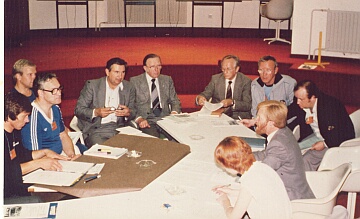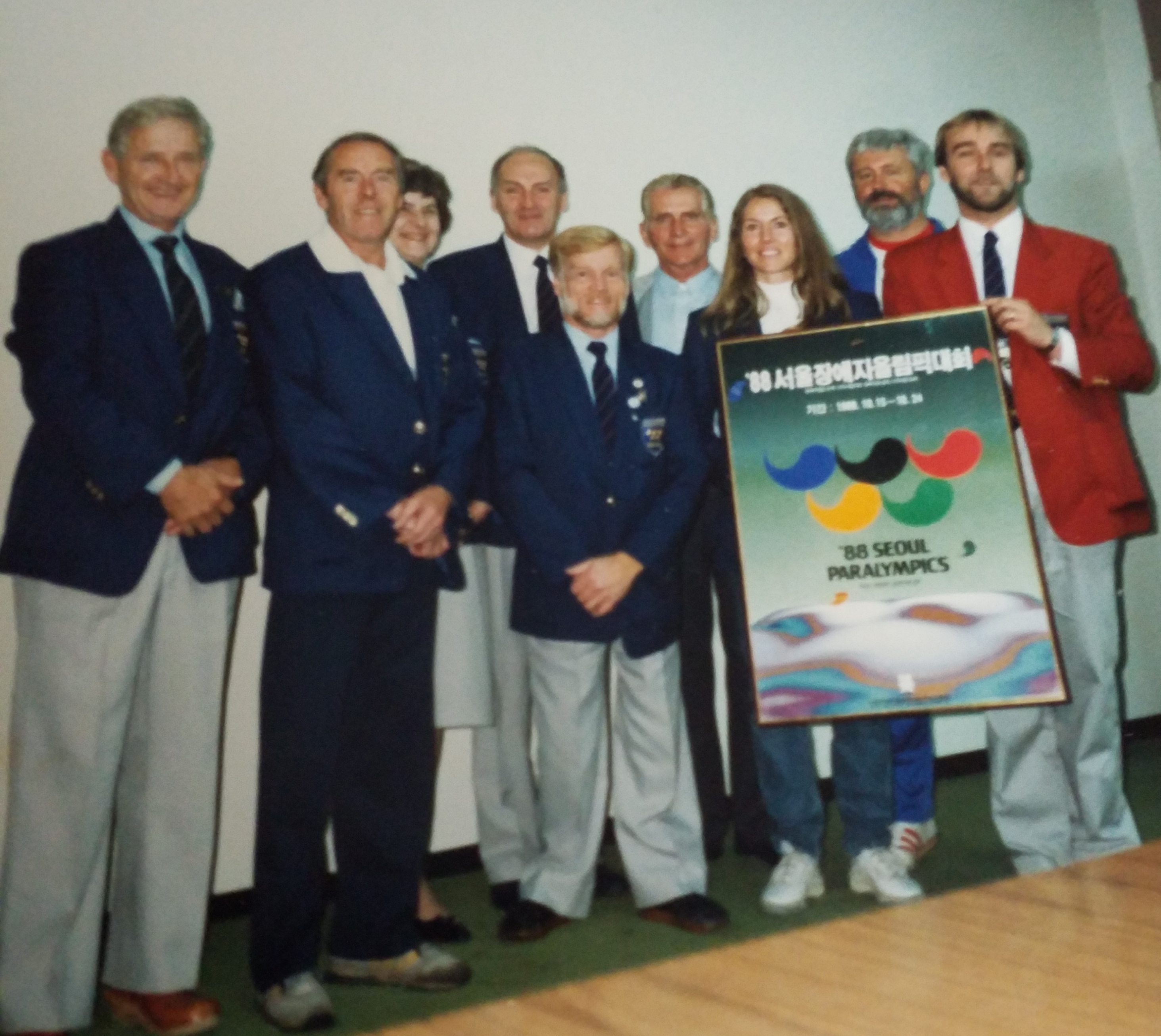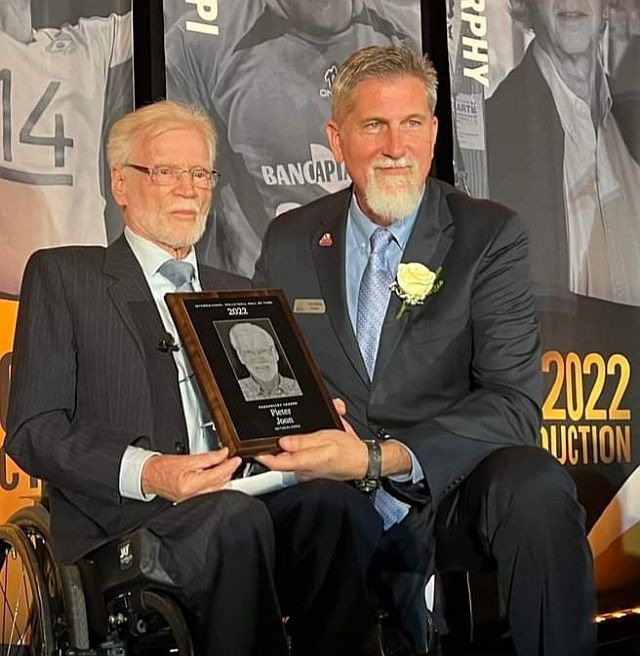There are very few people in the world who can say they literally started an 0lympic movement.
Pieter Joon is one of those people. Considered the Father of Sitting Volleyball,
Joon was born in Amsterdam and contracted polio when he was only two and a half years old. AÍter many months in the hospital and several surgeries, he taught himselÍ to walk at age 13.
lntroduced to the traditíonal sport ofÍ volleyball in a coaching and officiating capacity, Joon joined the Kennemer lnvaliden Sportclub (KlS) when he was a teenager. While playing sitting volleyball at KlS, Joon started up the ranks of the club, the west region of the Netherlands National volleyball Federation and the Dutch National Federation for Disabled's.
While the popularity of sitting volleyball had expanded around the world by the mid-1970s, the game was not played under a unified ruleset and thus caused many frustrations when different countries played each other during international tournaments, including an event in Bonn in May of 1976.
It was at this event that it became clear to Joon that these differences in rules and the game itselÍ was the main reason, that sitting volleyball was not invited to the Paralympics like standing Volleyball was for the 1976 TorontoParalympic games'
 When Arnhem,Netherlands,was announced as the l980 Paralympic host, Joon organized a test sitting volleyball tournament in. Haarlem, Netherlands in 1979, in what is now known as the first official recognised sitting volleyball tournament.
When Arnhem,Netherlands,was announced as the l980 Paralympic host, Joon organized a test sitting volleyball tournament in. Haarlem, Netherlands in 1979, in what is now known as the first official recognised sitting volleyball tournament.
As part of a working group for lnternational Relations, Joon has stated that he felt it was the right time to get Europe on the same page convincing : Germany, Denmark, Norway, Sweden, Finland, Luxembourg, Yugoslavia and Belgium to leave their hard work over the years from 1944 to 1980 and to choose sitting Volleyball in the future.

Joon"s own hard work paid off, as there were eight sitting volleyball teams in the 1980 Arnhem paralympics, where Joon served as the technical coordinator. Joon was also instrumental in an unanimous decision by the countries to play the game with only a minimum handicap , stating this decision allowed him to secure the character of the game.
After the success of the 1980 Paralympics, Joon founded and became the first president of the World Organization Volleyball for Disableds, as part of the lnternational Sports 0rganization for Disabled. His goal with the organization was to offer Sitting Volleyball as a sport in all world regions, without the impediment of a classification system as was traditional in Paralympic sports offerings'.
ln this position and with the cooperation of the lnternational Fund sport for Disabled, Joon was able to set-up development projects in Africa, the Middle East, Asia, South America and Central America. Joon said about this project: "Accessibility for our sport was more important than a classification requirement I want everyone with any kind of disability to play sports ".

Joon served on the Paralympic (volleyball) technical committees for 20 years and served on countless boards and committees for the advancement of the game.
Women's sitting vofleyball entered the International movement 1993 and in 1994, the World 0rganization Volleyball for Disableds, now known as World ParaVolley, became a stand-alone entity. Behind it all, Joon was at the helm, leading the way for accessibility and inclusion.

For his vision and leadership to bring volleyball to those with disabilities around the world , we are proud to induct Pieter Joon into the lnternational Volleyball Hall of Fame as a Leader.